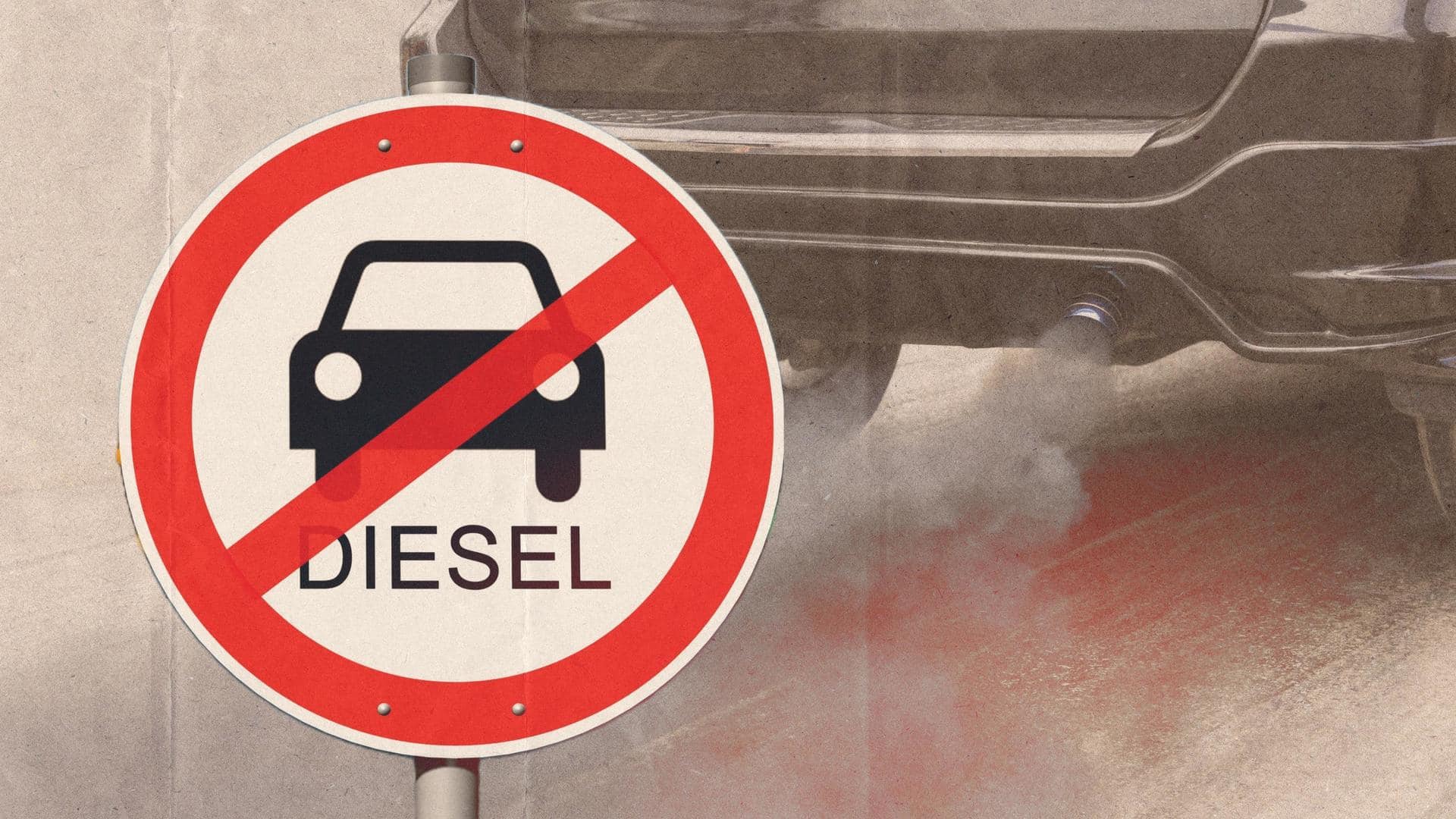
Diesel vehicle ban in India: Government panel proposes 2027 deadline
What's the story
A panel formed by the Union Ministry of Petroleum and Natural Gas has proposed sweeping changes to cut down on vehicular emissions.
The body has urged the Centre to ensure that new registrations of only electric-powered buses are allowed from 2024 and usage of diesel-guzzling four-wheelers is banned by 2027.
It is unclear whether the ministry will seek cabinet approval for implementing the reforms.
Details
No diesel vehicles in cities with over 10L population: Panel
India wants to achieve its net zero goal by 2070. To meet this goal, the panel wants the country to switch from diesel to CNG-powered and electric vehicles by 2027, in cities and towns with a population of over 10 lakh.
However, it will not be easy. Around two-fifths of refined fuel consumption here is diesel and 80% of it is meant for transportation.
Information
How will EV adoption be boosted?
The panel appointed by the petroleum ministry has also urged the Centre to opt for a "targeted extension" of benefits offered under the FAME scheme beyond March 31, 2024. This will help boost EV adoption on our shores.
Plans
Building underground gas storage facilities a necessity
By 2030, India wants to raise the share of CNG in its energy mix to 15%, up from 6.2% at present.
To this end, the panel has recommended building underground gas storage facilities as the demand will rise significantly over the next 30 years.
The facilities might be built in aquifers, depleted oil and gas fields, and salt caverns.
Transportation
Increase railway usage for moving cargo
The panel has suggested increasing the usage of CNG-powered trucks and railways for transporting cargo. This will reduce the dependence on diesel.
To note, in the next two to three years, the Indian railway network will be fully electrified.
The panel, headed by former oil secretary Tarun Kapoor, also claimed that electrification is necessary for long-distance buses in the "long term."
Information
Switching to EVs is a win for everybody
India has set a goal of producing 40% of its electricity from renewable energy sources. This electricity will be used to power vehicles here and also bring down vehicular emissions. Once a substantial switch to EVs is made, fuel import bills will also go down.